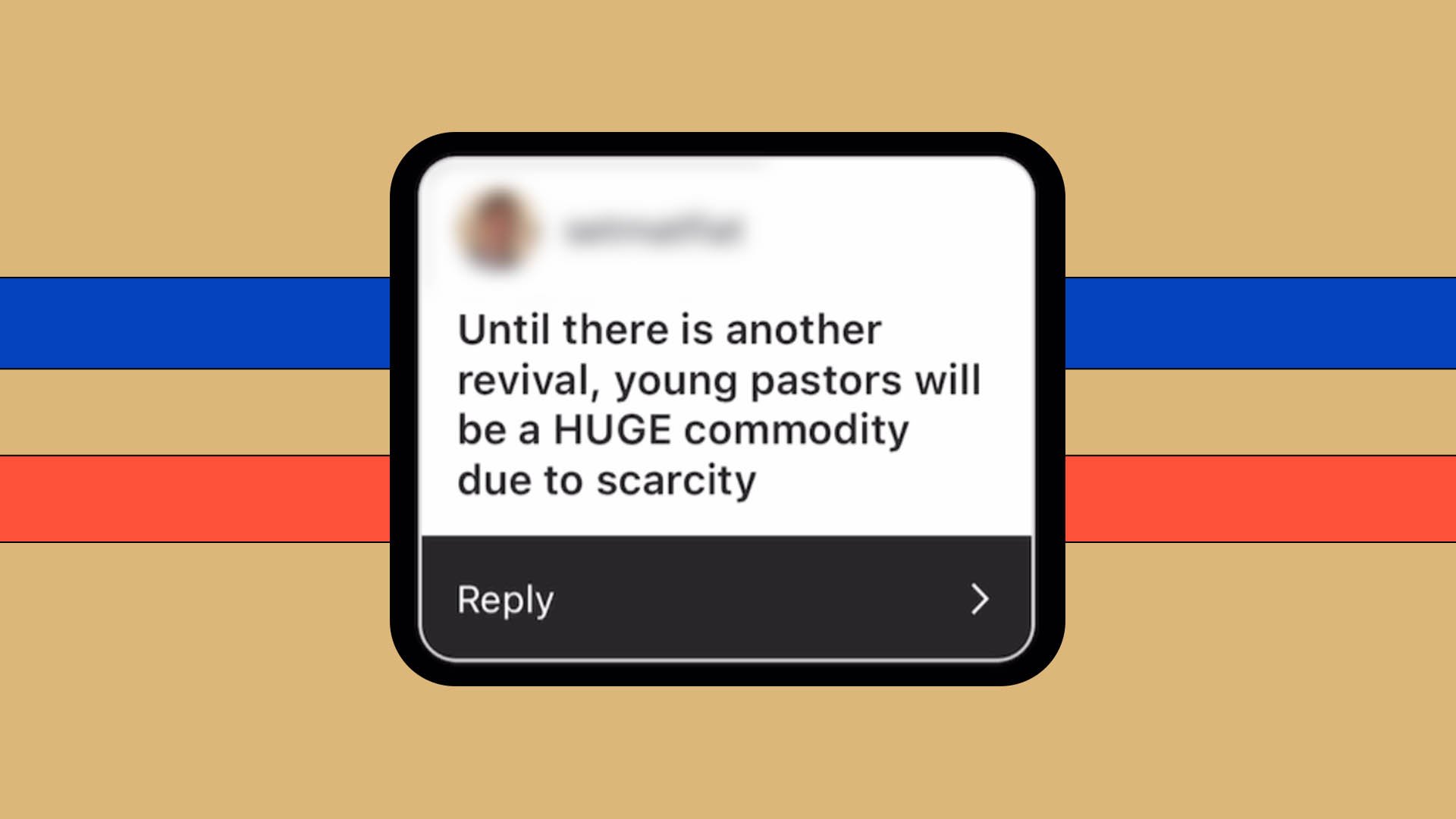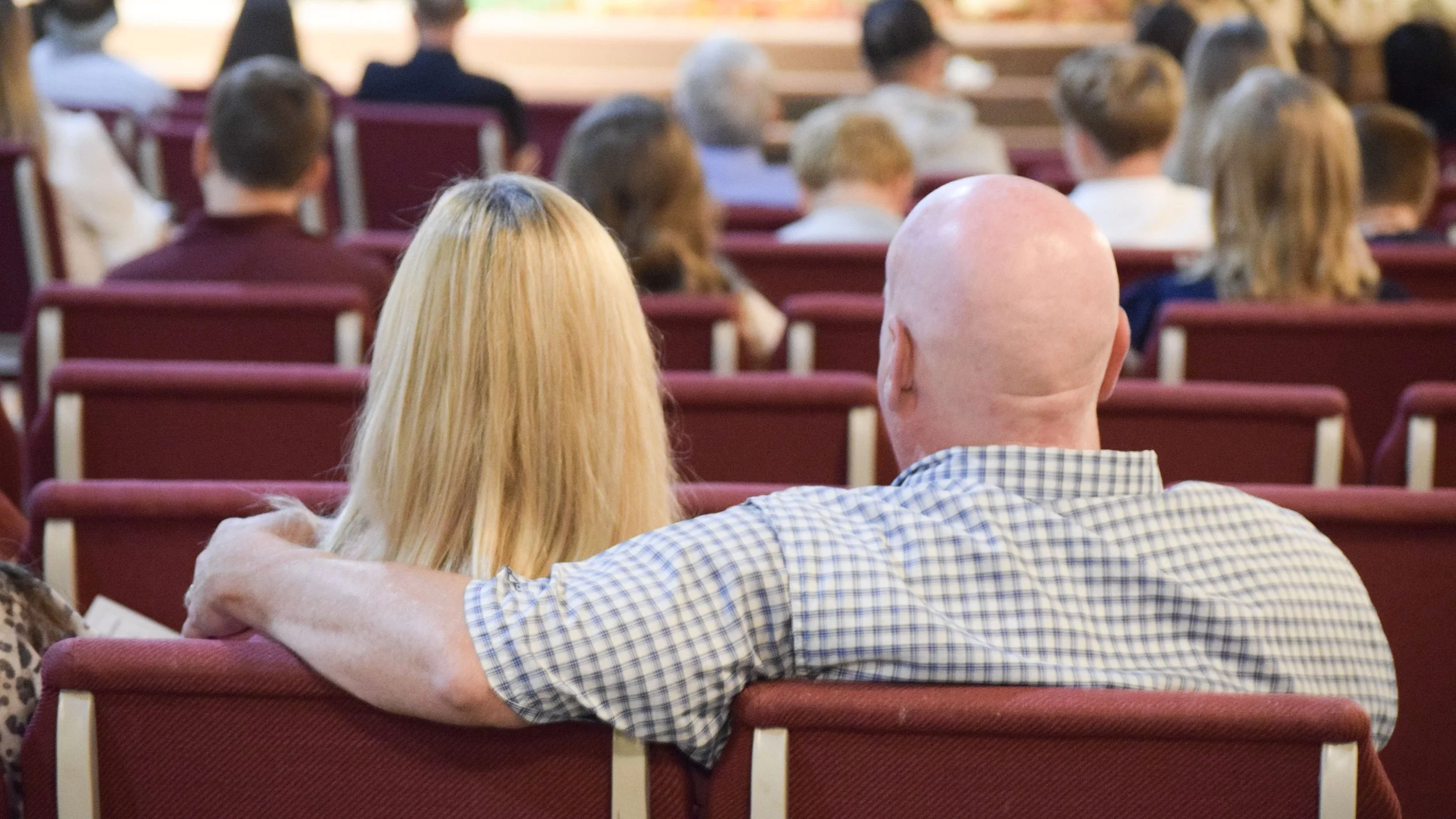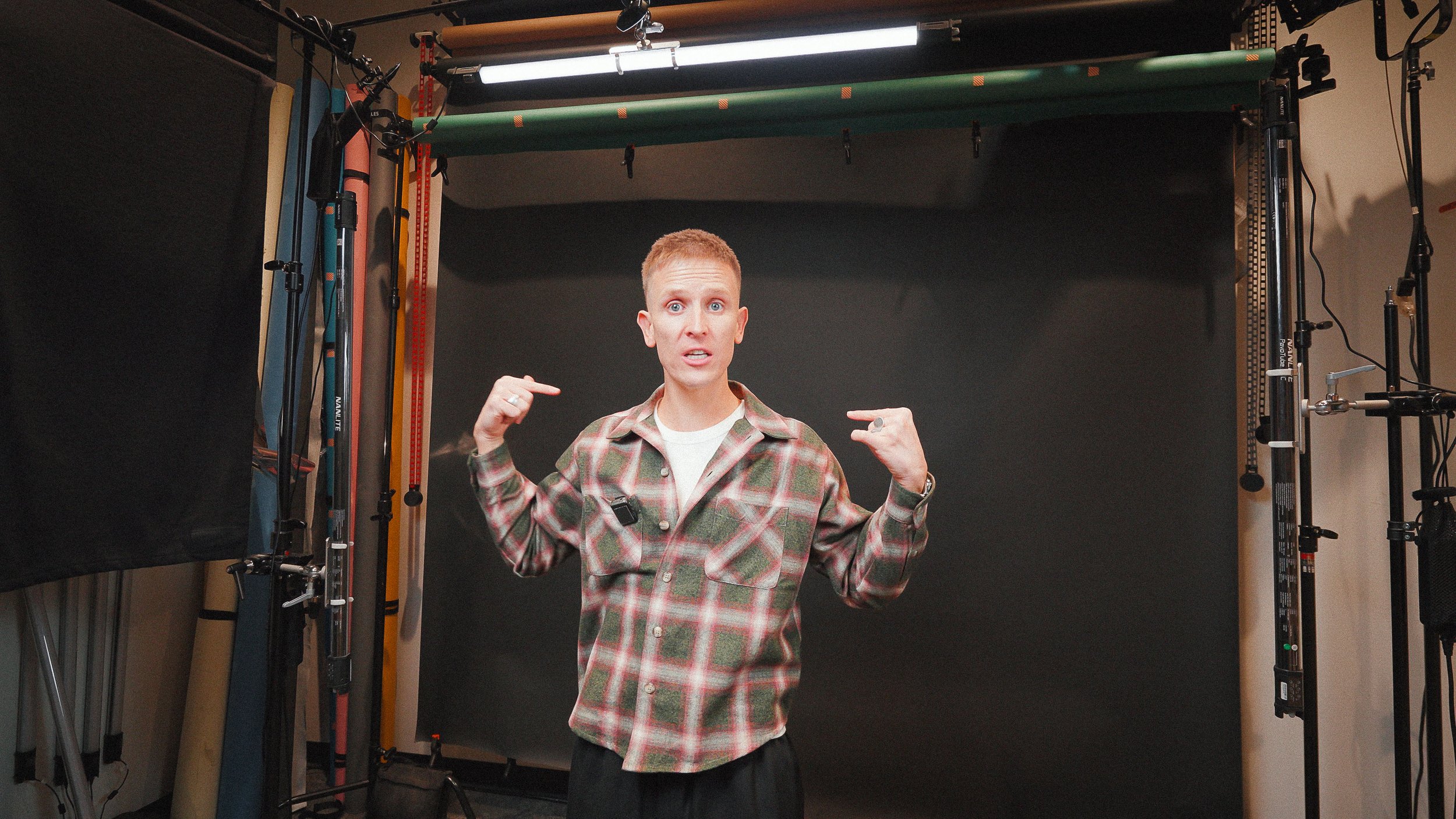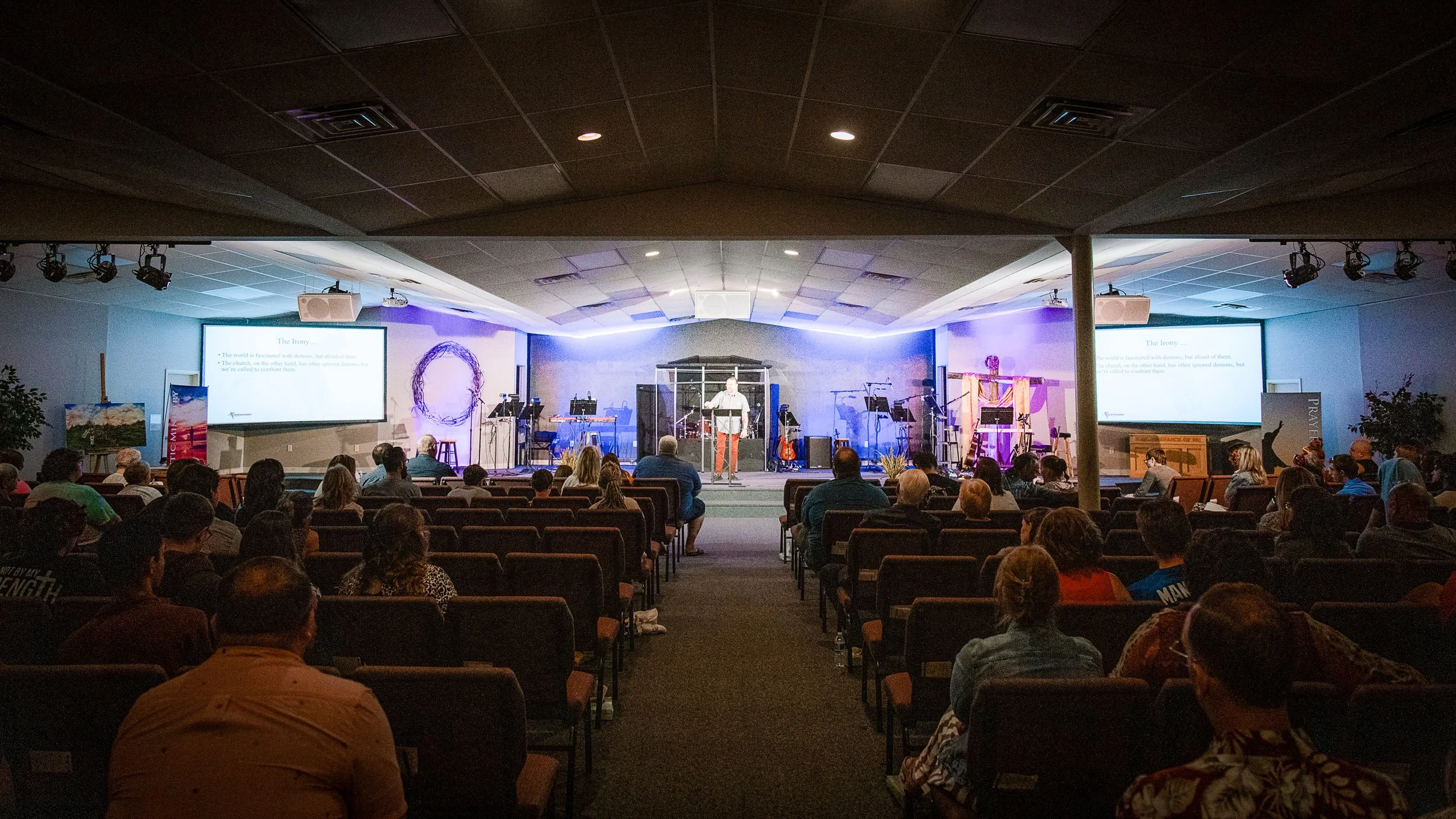7 Hot Takes About The Future Of Church
I asked you all on Instagram for your hot takes about the future of the church.
You flooded my inbox with replies.
And so today, I’ll be reacting and giving my thoughts on your hot takes.
Let’s dive in.
Hot Take #1
NOTE: I'm blurring names here because the folks who submitted these sent via direct message and didn't post them publicly.
"For the American church to thrive, we need to invest in the next generations more than ever before."
I'll drop the 'American' qualifier here, but let's look at some numbers on this.
Ryan Burge is one of my favorite data sources and an excellent follow on X as well.
His header on X simply says Graphs About Religion, and here's one of those graphs -
What you're looking at is a breakdown by generation of those who claim no religious affiliation.
Two things to point out:
Clearly, each generation in America sees a more significant percentage of people with no religious affiliation.
Moreover, as time passes, generations on their own are becoming less religious.
For example, in 2016, 38% of Millennials had no religious affiliation. In 2022, that number rose to 44%.
Similarly, Gen Z was at 39% with no religious affiliation in 2016, and in 2022, that number rose to 48%.
To quote Ryan Burge last year,
"It seems statistically justifiable to say that by the time the United States has another presidential election, half of Generation Z will identify as atheist, agnostic, or nothing in particular."
And if you're curious how this data was compiled or want to dive deeper, here’s a link.
But here's the bottom line: Gen Z is the least religious generation in American history.
And they are becoming less religiously identified as each year passes.
Combine that with the fact that every day, thousands of members of the Silent and Boomer generation are dying off.
Making it not at all hyperbole to say that
The landscape of faith and religion in America (and, by extension, a lot of the Western world - I'm a Canadian for context) is changing rapidly, and the consequences of that will likely be profound and, as of yet, not fully known or predictable.
This gets me back to the original hot take from this person, "we need to invest in the next generations more than ever before."
Perhaps you balked at that and thought to yourself, "Yeah, we say that every generation, though. This time, it's no different."
Except, maybe this time, it is different.
Now, this brings up the challenging question every one of our churches has to face, especially if, like most churches, your congregation is aging:
What changes will you make to reach the next generation, knowing that those changes will likely be uncomfortable and not preferred by the older generation?
You know, the people who actually go to and support your church right now.
Like, it's not an easy proposition, right -
"Hey, we know that this is how we've always done things, and you like them, but to reach a group of people that have never shown interest in our church, we're going to abandon everything you prefer in hopes of reaching this other group of people."
But...what's the alternative?
We saw the trends on the graph.
And I'm not trying to be a buzzkill here, but rather, soberly acknowledge the reality that so many of our churches are facing right now.
Hot Take #2
We're "going to become numerically smaller, but theologically and communally deeper."
This is the positive read on the current state of things - if you want to call it that.
And I'm happy to add my perspective as a non-American here.
Because my experience in my own country of Canada is that I didn't grow up with cultural Christianity.
At least not to the same extent that my American friends did.
Our churches in Canada are much smaller relative to our American neighbors.
If you go to church, it's usually because you really want to attend church.
And so the glimmer of hope I can offer all of us is that there is great value in knowing that the people that do attend and serve in our churches are not simply doing it because it's what you do in the culture, but because it truly matters to them and they want to be a part of it.
Hot Take #3
"The most well-attended/popular churches won't have fancy production."
I’m gonna have to disagree with this one.
I just don't see it.
Why? Because I'm bullish on human nature.
We love spectacle.
Sports stadiums are only getting bigger and with higher production.
Live concert venues like The Sphere are trailblazing new examples of greater tech and greater production value.
And I think in the history of the Christian faith, there's no shortage of things we can point to where a group of Christian leaders wanted to make a big deal about God, and the way they did that was with spectacle and scale.
And I don't think it's a uniquely American thing, either.
The other reason I don't see this happening is because the bigger a church is, the easier it is to be a spectator.
It's easier to draw a crowd because you ask less of the person attending.
Right?
Because the smaller a church is, the harder it is to slip in and out unnoticed.
It's more intimate and, thus, more relationally demanding.
What I'm saying is by virtue of its size, it's not easy for large churches to be intimate.
You can't easily do real community with that many people in one place, so what's the substitute?
Production. Spectacle.
They just go hand in hand.
So you could say that we won't see big, popular, well-attended churches at all.
But so long as those churches exist, I think they will have the fancy production that so many of us crave.
Hot Take #4
"Until there is another revival, young pastors will be a HUGE commodity due to scarcity."
Yeah, so this is interesting.
I'm skeptical of this just because of the reality of supply and demand.
The 2020 Faith Communities Today Survey (one of my favorite data sources on the current state of church and the largest national survey of congregations ever conducted in the US) found an increase in the average age of pastors, climbing from age 50 in 2000 to age 57 in 2020.
Additionally, those who attend religious services are twice as likely as the average American to be 65 and older.
So what does that all mean?
Well, most pastors are older, yes, but if you're older, you're also a lot more likely to go to church.
This means you would be a relatively rare commodity if you're a younger pastor.
The supply is low there, but is the demand high?
It doesn’t seem so.
Hot Take #5
This was a popular one.
"Bi-vocational pastors will become the norm and the majority"
"Once the Boomers die, giving will decrease, leading to more pastors working secular jobs"
"the need for full-time senior level pastors won't exist"
"all ministers should be trained to be bivocational."
Yeah, so this tracks.
To get a baseline for where things are today, the previously mentioned Faith Communities Today Survey reported that among all leaders, three-quarters (76%) are full-time, and the remaining 24% are part-time.
To get to where bivocational is the majority, we'd need to roughly double the number of part-time pastors right now.
Which, over the next quarter century or so, looks pretty reasonable.
Now, you might be reading and thinking, "Quarter century? Man, it won't take that long. Give it ten years!"
And interestingly, a lot of the hot takes that got sent in used that kind of timeline.
"Oh, in a decade, things will be like this..." I don't see change moving that fast.
Which is ironic, right? What’s our tagline here?
We’re living through the biggest communication shift in 500 years.
That's what I always say.
And that's true.
It's just that I've found we tend to overestimate how quickly things will flip.
That isn't to say we can't see it on the horizon.
We can clearly discern where the trend is heading.
But for the reality to be fully cemented, it seems to always take longer than we tend to predict.
Hot Take #6
Another highly popular take…
"Return to Orthodox theology/traditions. Not fully Orthodox, but blended with modern."
"The "trend" in church will go more traditional and feel less produced."
"It will look a lot like the historic church"
"Simplicity will replace the over-production of Sunday services. We will see more liturgy."
Something that really interests me when thinking about the church's future is the experience of those serving in churches and where that does (or does not) intersect with the preferences of the people in the pews.
Because when I read these hot takes about the future of the church (and by no means is what I'm about to say meant to discount these perspectives or experiences), it sounds like weary church staff that are being overworked and have just had enough with the big productions and what it requires of them.
Their reaction is to pine for a different era of church that is slower, more deliberate, and purposefully simple.
You might think I'm reading into this too much, and that might be the case.
But what I'm interested in is this:
Is this perspective shared by the congregations of these churches?
Or is it not?
I don't know the answer.
But I think many of the people in these churches may enjoy the big production and spectator experience even while the people working behind the scenes are under too much pressure with great demands and expectations that are too high and pay that is too low.
That means the solution may not be to swing to the other side of the pendulum but rather to find more sustainable ways of pursuing the same model.
Perhaps the crux, though, is that that is not possible.
Which is the point these people are making.
Alternatively, we could see a broader realization among staff and church attendees that this attractional model doesn't work, save for a small handful of churches with affluent and charismatic personalities.
And that for the rest of us, leaning into the historical rhythms of the church, centered around liturgy and The Table and the church calendar, is what has always made sense and is something we should get back to.
Conclusion
Let's close with this final hot take about the future:
"it'll be fine."
Amen, right?
Through every cultural change and upheaval around the world, The Church endures.
Thanks as always for your time, attention, and trust.
Make sure to give me a follow on Instagram @bradyshearer so you can participate in future Q&As like this one.
We’ll talk real soon.













